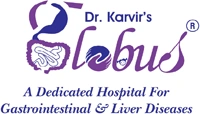Sibo (small intestinal bacterial overgrowth)
Small intestinal bacterial growth is defined as excessive bacteria in the small intestine. Though bacteria are important for the process of digestion they should be present in the right amount.
Symptoms of sibo are nonspecific and may include bloating, diarrhea, flatulence, distension, abdominal pain, belching, and indigestion. Along with these symptoms, sibo may also interfere with the normal functioning of the small intestine. The body is not able to absorb nutrients because of the damage to the small intestine.
What are the causes of sibo?
Small intestinal bacterial outgrowth is generally caused due to:
- Structural problems related to the small intestine – intestinal adhesions can wrap around the outside of the small bowel and bulging pouches protrude through the walls of the small intestine.
- Medical conditions – certain medical conditions such as crohn’s disease, celiac disease, diabetes, scleroderma, and radiation enteritis that slow down the movement of food particles through the small intestine.
- Complications of abdominal surgery – sibo may be caused due to gastric bypass for obesity and gastrectomy did to treat stomach cancer and peptic ulcers.
What are the factors that increase your risk of sibo?
- Diabetes
- Diverticulosis of the small intestine
- An injury of the small intestine
- History of radiation therapy of the stomach
- Fistula between two segments of bowel.
What are the complications associated with sibo?
-
Vitamin deficiency – the body is unable to absorb fat-soluble vitamins a, d, e, and k due to the incomplete absorption of fats. Vitamin b12 is essential for the proper functioning of the nervous system and the production of blood cells. This b 12 is synthesized and used by bacteria in the small intestine. The overgrowth of bacteria in the small intestine thus results in deficiency of vitamin b 12. This results in fatigue, weakness, numbness, and a tingling sensation in the hands and feet. The damage to the nervous system in severe cases may even be irreparable.
-
Osteoporosis – damage to the small intestine due to bacterial overgrowth may result in weakened bones because of reduced calcium absorption. This ultimately leads to osteoporosis.
-
Poor absorption of fats, proteins, and carbohydrates – overgrowth of bacteria in the small intestine may cause damage to the mucous lining of the intestine reducing the absorption of carbohydrates and proteins. The excess bacteria also break down the bile juice needed to absorb fats, reducing the absorption of fats in the body.
-
Kidney stones – reduced calcium absorption due to bacterial overgrowth results in the formation of kidney stones.
Others Condition:
Bloating | Cancers of Stomach, Intestine & Liver | Constipation | Hirshsprung’s Disease | Gallstone | Dysphagia | Inflammatory Bowel Disease | Pancreatitis | SIBO | Barrett’s Esophagus | Blood in Stools / Vomitus | Celiac Disease | Diarrhea | Fatty Liver | Gerd | Irritable Bowel Syndrome | Piles


